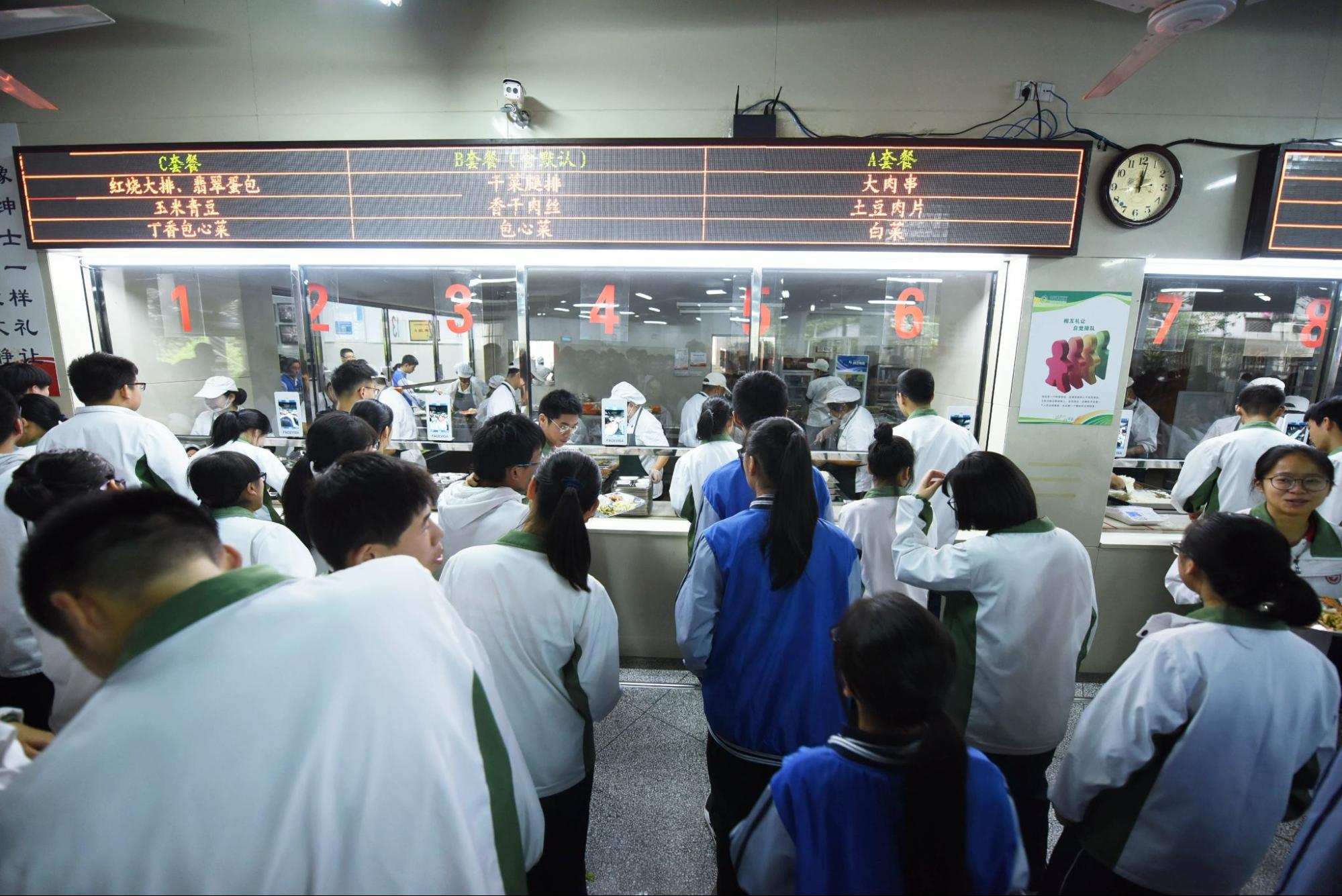Chinese parents rally against school meals over food security concerns
After years of unchecked growth, the Chinese industry of pre-cooked, ready-to-eat food is now trying to create a new market in schools. The move, however, was immediately opposed by parents.

In a scene that has become increasingly common in the past few weeks at schools across China, students can be seen gathering outside campuses during lunchtime, waiting for homemade meals to be delivered by parents or other relatives.
In several videos that have made the rounds on Chinese social media, groups of teengers in cities like Ganzhou and Wuxi can be seen gulping down meals outside the school gate. This is in response to a controversial change at Chinese schools, where ready-to-eat food has largely replaced freshly cooked dishes.
While such meals — characterized by their long shelf life and minimum effort to prepare — are not a novel concept in China, they have never been scrutinized as they are now, when Chinese parents have taken to the internet to share their questions and gripes about the pre-cooked lunches served in their children’s schools.
In one post on Douyin, the Chinese version of TikTok, an enraged mother in Jiangxi uploaded a photo of her kid’s lunch at elementary school, with the caption saying, “Today is the third day of school and this is how my kid’s lunch looked like. He told me that the meat was incredibly salty and the bean curbs tasted sour. It’s inedible for him.”
Echoing the mother’s displeasure, a video shared by a teacher in Jiangxi shows piles of lunch plates that contained a staggering amount of waste food, implying that students were rejecting the new frozen food-centric menu. Another complaint shared by a concerned parent in Hunan shows the label on their teenager’s school lunch, which indicates that the food contains a host of preservatives that allow it to have a shelf life of at least a year.
In addition to expressing frustration that the school meals were gross, nutrition-deprived, and, in some cases, caused sickness in students, some parents also accused school officials of being dishonest about the menu change. They claimed that before the fall semester started, they learned from teachers that the new menu would be prepared by a “central kitchen,” assuming that the food would still be cooked on the day of serving.
As complaints piled up and more parents opted to deliver lunches to schools, news about the pre-prepared meals is proliferating under hashtags that also promote calls for change. Even parents who are unaffected by the revamp have vowed that they would also intervene if their childrens’ schools followed the trend.
“If my son’s school starts serving ready meals, I will quit my job to cook food and deliver it to my son every day. All I want for my son is for him to be healthy and I will do everything I can to make that happen,” a mother in Anhui replied to a Douyin video posted by China National Radio, which has garnered over 420,000 comments and nearly 340,000 likes.
Public health and food security have long been sore spots for Chinese parents. In the summer of 2018, protests broke out outside the offices of the National Health Commission in Beijing after parents discovered that more than 250,000 defective vaccines had been administered to children across the country. A year later, revelations that a highly rated private school in Chengdu fed students moldy food sent hundreds of fuming parents into the streets, where they blocked traffic and clashed with police before being dispersed by pepper spray. In one video showing the demonstration, a woman yells into a microphone: “I’m not afraid to go to jail. I’m not afraid to break the law…as a mother, I just want to see my son healthy.”
When it comes to food services on campus, a common critique among Chinese parents is about a lack of transparency in schools’ choices of vendors and suppliers. They argue that through an unfair process riddled with bribery and corruption, school officials and local education authorities often give opportunities to companies that they can do secret businesses with, placing personal profit over public interests.
In light of the ready meals controversy, many critics speculated that there was abuse of power involved, with some calling on the government to launch an investigation into the matter. “It seems strange to me that these pre-cooked foods just got introduced to schools all over the country almost overnight. There is something fishy happening here,” a Douyin user said. One of the related cases that has been called into question involves a country-level government in Hubei, which publicly invited ready-meal companies to bid for a 30 million yuan ($4.1 million) government contract in August.
So far, at least two local education bureaus have responded to the concerns. Last week, two education offices in different districts of Haikou, a port city and the capital of Hainan Province, released statements vowing not to feed students ready-to-eat food. One of them promised that the food served at local schools would be consumed in less than four hours after it’s cooked.
Fueled by a fresh burst of interest during the COVID-19 pandemic, where homebound families were forced to seek convenient and home-cooked meal options, pre-cooked food, or yùzhìcài 预制菜, has enjoyed a surge in popularity among Chinese consumers in recent years. According to a report released by Deloitte last year, China’s pre-prepared dishes market generated about 550 billion yuan ($75.34 billion) in 2021, and it was projected to expand with a compound annual growth rate of 13% over the next five years.
In a country where the government can make or break an industry, ready meals also have officials on its side. In China’s key annual government policy document, known as the No. 1 central document, released in February, the pre-cooked meals sector is included as a “key industry to develop” for the first time. Local governments are trying to cash in on the booming sector, too. Last April, the Weifang government in Shandong Province said it would offer grants of up to 2 million yuan ($274,288) to each highly qualified worker at pre-cooked food companies.





